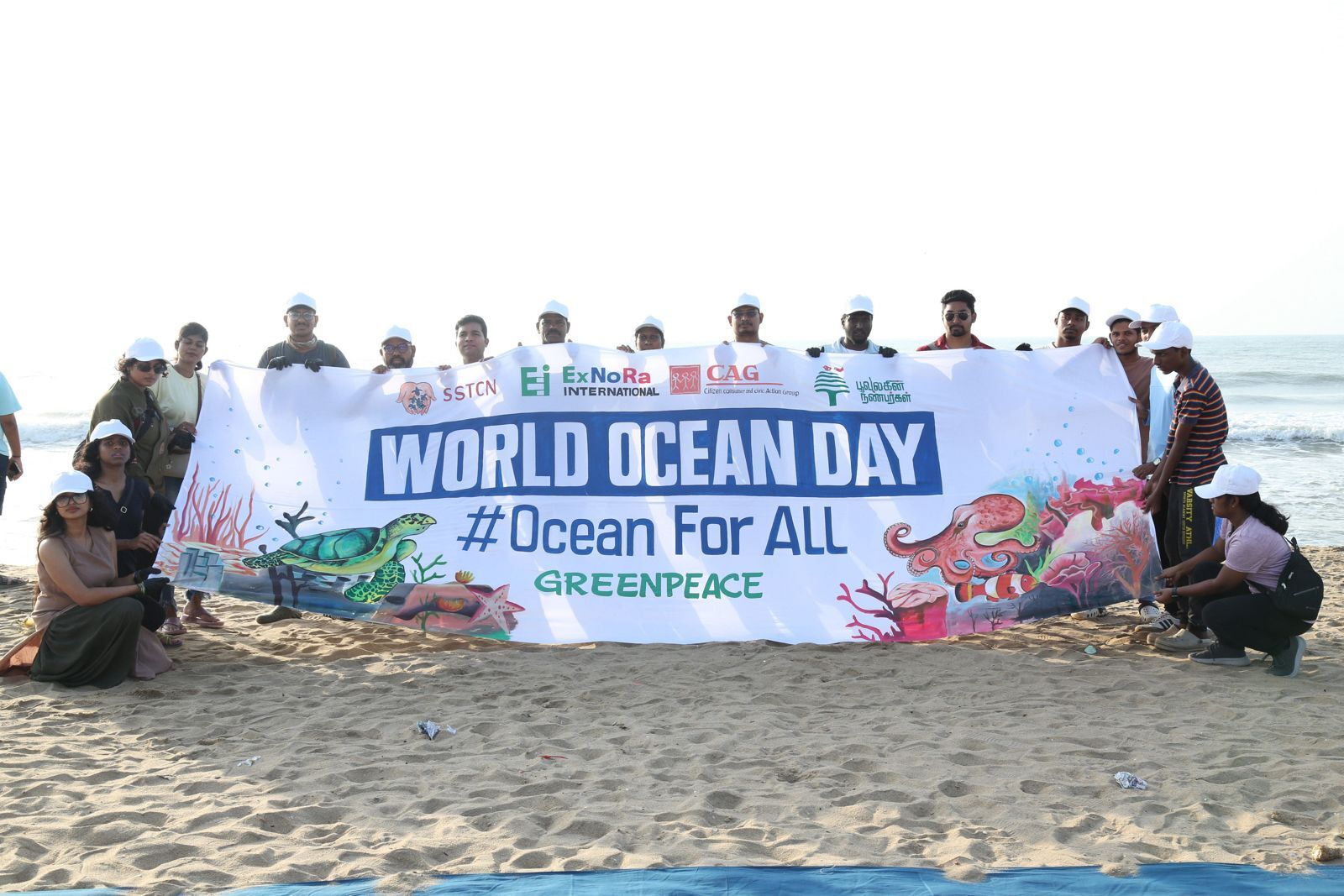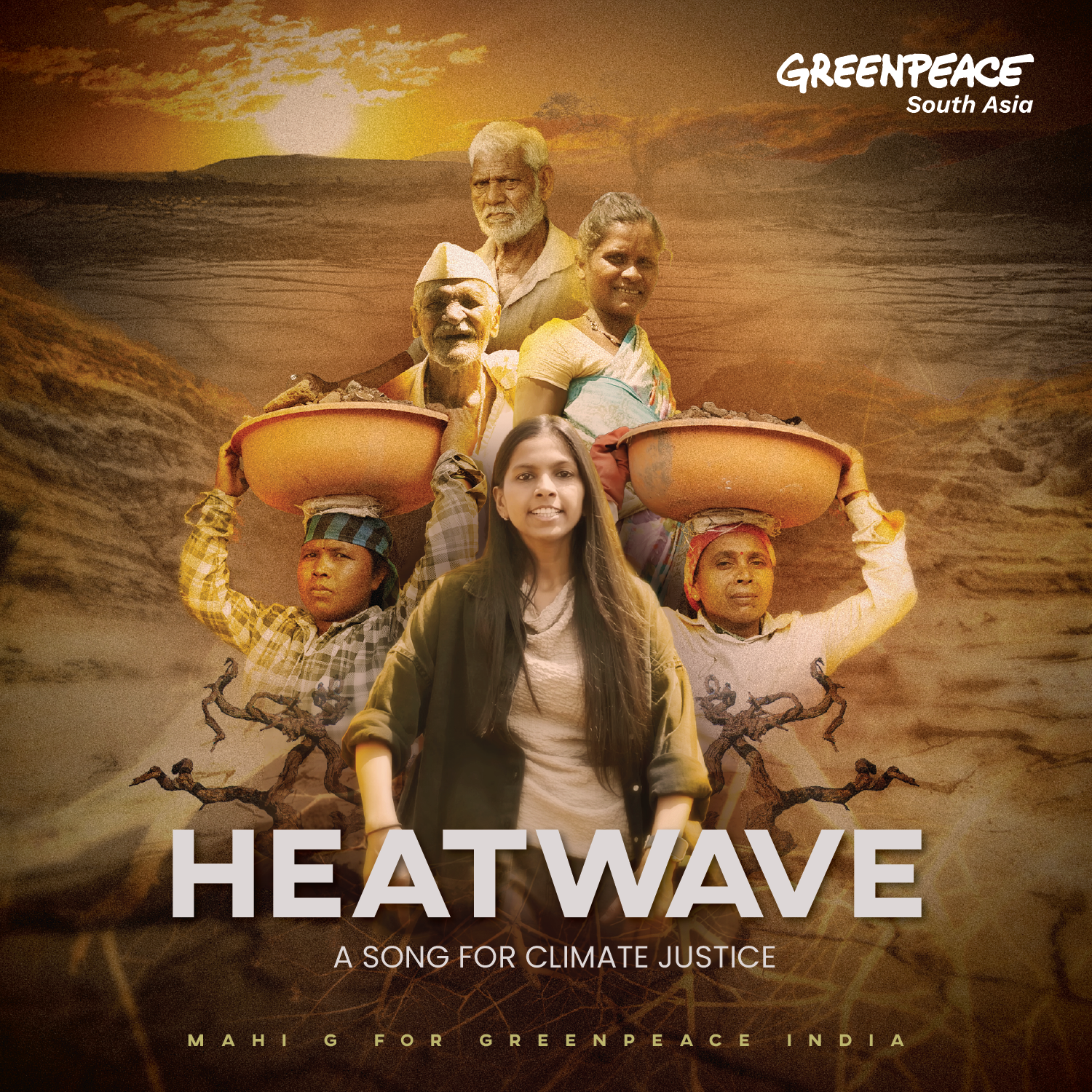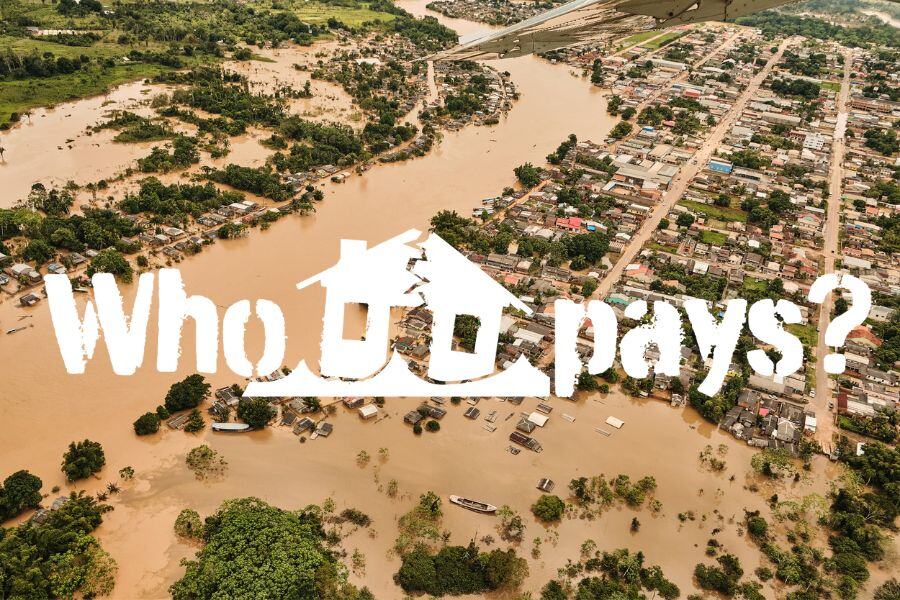Despite the reasonable improvement, the air quality all three cities remain higher than the prescribed WHO standards
Bengaluru, 07 December: A latest Greenpeace India analysis of Central Pollution Control Board (CPCB) data has revealed that the air quality in three major southern cities (Bengaluru, Hyderabad and Chennai) this November was comparatively better than November 2019. The reduction in PM2.5 emissions ranged from 16 to 37 per cent, however, the air quality in all three cities still remains higher than the prescribed WHO standards (25μg/m3).
In Bengaluru, the average concentration of PM2.5 this November recorded was 33.49μg/m3 as compared to 40.33μg/m3 in November 2019, which means the average concentration of PM2.5 reduced by 16.96%. Bapuji Nagar and Jaynagar remained hotspots with an average PM2.5 concentration of 42μg/m3 and 39μg/m3 respectively. According to the analysis, Bengaluru only observed 12 such days in November 2020, where the PM2.5 concentration remained under the prescribed WHO standards. BTM layout in the city was the least polluted area with an average PM2.5 concentration around 20μg/m3.
Similarly, in Hyderabad, the average concentration of PM2.5 reduced by 17.88%. The average concentration of PM2.5 this November was 56.32μg/m3 as compared to 68.58μg/m3 during the same period last month. Air quality monitoring stations in Sanathnagar and Zoo park recorded the highest average of PM2.5 i.e; 62μg/m3. In the whole month, Hyderabad only witnessed a single day where the city’s air quality matched the prescribed PM2.5 WHO standard.
Chennai’s air quality fared much better than Hyderabad and Bengaluru. Chennai’s average concentration of PM2.5 was 34.11μg/m3 as compared to 54.75μg/m3 in November 2019. Manali remains the worst polluted area of Chennai with an average of 48μg/m3.
According to an online tool developed by IQAir AirVisual and Greenpeace Southeast Asia, air pollution from PM2.5 and No2 were responsible for 7577, 6228, and 6374 premature deaths respectively in Bangalore, Hyderabad, and Chennai from 1st Jan to Sept 4th, 2020.
Reacting to the findings of the analysis climate campaigner at Greenpeace India, Avinash Chanchal said, “Apart from industries, vehicular pollution continues to be a major source of pollution in these cities. Expansion of the city area and population, along with growth in economic activities in the peri-urban areas, has resulted in high vehicle ownership rates. The pandemic has given us an opportunity to introspect and ask – how should our development trajectory be? It’s high time that the governments and local authorities adopt systemic reforms on clean energy and transport that includes promotion of decentralized model of renewable energy, generation of green jobs, measures taken to promote electric vehicles and rebuilding trust in public transport. If we don’t act, these cities will follow the fate of the top polluting cities in terms of health and economic impact.”
“Low-cost urban transport needs to be redesigned and active and carbon-neutral vehicles and climate-resilient infrastructure needs to be developed,” stressed Chanchal.
It is noteworthy that PM 2.5 is causing serious health risks like cardiovascular diseases, respiratory diseases, and lung cancer. Exposure to air pollution increases our vulnerability to respiratory viral infections both in terms of the transmission and severity of the infection. In the case of COVID-19, current evidence indicates that chronic exposure to air pollutants is associated with more severe infections and higher mortality. There are studies that underscore the importance of continuing to enforce existing air pollution regulations to protect human health both during and after the COVID-19 crisis.
Thus, to bring the air quality within prescribed WHO limits, these cities need a coordinated and consistent action plan to address major sources of pollution that exist throughout the year.
For any further queries:
Rohin Kumar
+91-9013971997
[email protected]
Avinash Kumar
+91-8882153664
[email protected]
Nischita.Verrendra
+91-9845828096
[email protected]




Discussion
I could not understand that how one can reduce wear and tear of vehicles tyres running of roads particularly 2.5 PM Level which have direct impact on lungs of human beings
Control Air Polusion ...Save Erart.